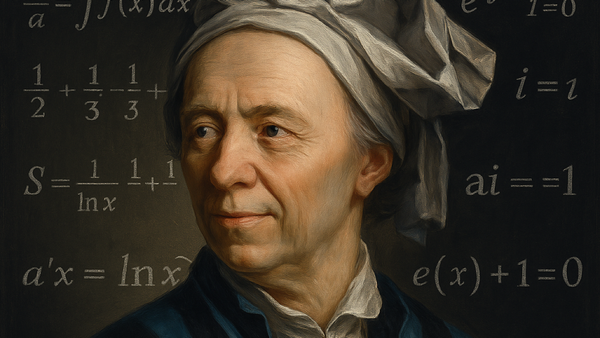Relationalism and the power of connection
Nothing exists in isolation. From quantum physics to Bhakti Yoga, reality is revealed through relationships. In a world shaped by ego and bias, true meaning arises in connection—through listening, serving, and sharing.

One of the most fascinating ideas in both science and philosophy today is relationism—the idea that nothing exists in isolation, and that reality itself is shaped by relationships. This simple but powerful shift in perspective has resonated deeply with me, especially because of my long involvement in Bhakti Yoga, the path of love and devotion.
Since 1997, Bhakti has been my philosophical compass. It taught me something life-changing: that love isn’t a feeling you chase or a possession you hold: it’s an action. Love is service. It’s doing something for someone not because you want something back, but simply because you care. This is the essence of Bhakti: to serve the beloved selflessly.
Over time, I began to notice how this revolutionary view aligned with emerging ideas in philosophy and science, especially in the framework of relationalism.
What Is Relationism?
In simple terms, relationism is the philosophical view that relations are more fundamental than things. An object doesn’t have meaning or identity in isolation; it only is what it is in relation to something else. A teacher is a teacher because there are students. A word has meaning only in a sentence. Even particles, according to some interpretations of quantum physics, don’t have definite properties until they interact with something else.
This view contrasts with the traditional idea that the world is made of independent “building blocks” or “substances” that exist on their own.
Relationalism flips this: things don’t come first—relationships do.
Bhakti as Relational Philosophy
What struck me is how close this is to the Bhakti worldview. In Bhakti, the individual self (ātman) is not complete in itself. It finds its deepest meaning in relationship with the Divine and with others. Bhakti Yoga isn’t about isolation or abstract knowledge—it’s about loving exchange.
In fact, many vedic texts describe the primeval intelligence not as a static entity, but as a being who loves and who desires to be loved. The Divine is relational at the core.
This mirrors one of the central teachings of relationalism: reality is not made of things, but of the connections between them. And this is exactly the foundational idea from which we developed the concept of Wholeness in our institute.
The Science of Connection
Interestingly, this isn’t just philosophy or theology. Neuroscience and psychology have also shown how much of our identity and perception is social and relational.
Our brains evolved in groups. We learn language, values, and meaning through others. Even our sense of “self” is shaped by our social environment. We’re not isolated data processors but meaning-makers in a web of interactions.
But here’s the challenge: our brains also have limitations. And one of the most dangerous is our tendency to fall into cognitive biases.
Cognitive Bias: The Silent Enemy of Love and Understanding
A cognitive bias is a kind of mental shortcut that often leads to distorted thinking. One example is confirmation bias—the tendency to look only for information that supports what we already believe, while ignoring or downplaying anything that contradicts it.
Let’s say someone thinks a friend is selfish. Every time that friend does something remotely self-centered, it reinforces the belief. But when the friend acts generously, the brain dismisses it as an exception. The relationship becomes stuck in a distorted loop—not because of reality, but because of how the mind is filtering it.
This is where both Bhakti and relationalism offer tools for healing.
The Power of Listening and Sharing
Bhakti teaches that to love truly, we must learn to listen—to the Divine, to others, and to ourselves. Listening means making space for the other, without immediately judging or trying to control.
In our institute, one of the values we hold most dear is sharing through conversation. This isn’t just exchanging ideas, it’s a way to co-create understanding. It helps us see beyond our own limited perspectives, and to gently challenge the biases that keep us trapped.
Conversations rooted in humility and curiosity allow us to touch something deeper than opinion: truth as a shared discovery, not a personal possession.
I have to acknowledge that these insights have come to me only recently, as it's not easy to let go of the personal ego and genuinely enter into a deep, authentic relationship with others. But looking back at my own journey, I realize how many times I’ve learned the most by true brainstorming and conversation, even with someone I disagreed with. Each of those moments revealed to me that truth doesn’t live inside one mind alone, but emerges in between us, in the space of relation.
Bhakti gave me a heart to serve. Relationism gave me a language to understand why service and love are not just moral choices, they are ontological truths. They describe the very structure of reality.
Nothing Exists Alone
In a world that often celebrates independence, competition, and individualism, the philosophy of relationalism reminds us of a deeper truth: we exist through each other.
To love is to relate. To know is to listen and share. And to live fully is to embrace the beauty and the challenge of connection.
So maybe the most radical thing we can do today is slow down, listen deeply, and serve with no expectation. Not just because it feels good, but because it’s what reality is made of.
Because in the end, nothing exists alone.



